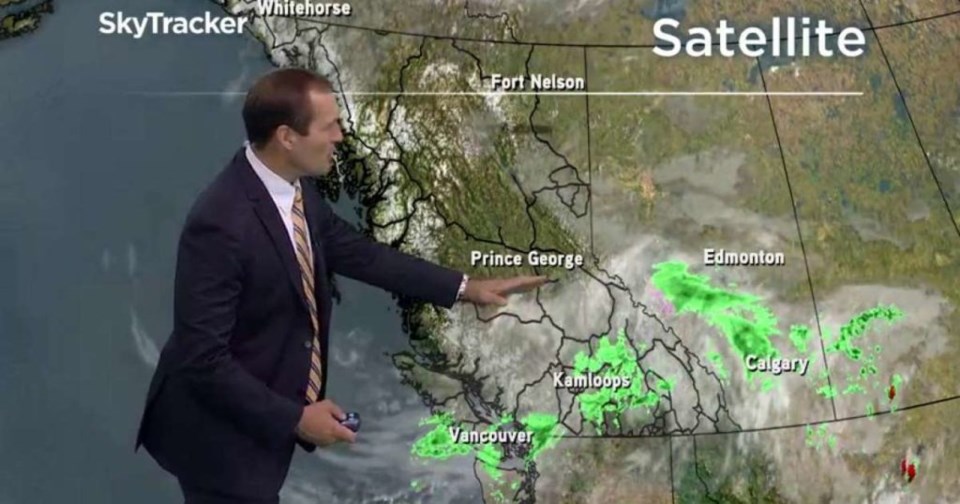‘Tis the season. As summer gives way to autumn, this is the most critical time of the year for Interior highway maintenance companies as they ramp up for their annual heavyweight title fight with Old Man Winter.
No route in British Columbia poses a more daunting winter driving challenge than the Coquihalla Highway, which has gained widespread notoriety as Discovery Channel Canada’s Highway Thru Hell.
“We understand and certainly respect the really unique challenges posed by the Coquihalla highway systems,” says Dave Duncan, general manager of Yellowhead Road and Bridge (Nicola).
While noting the route’s mix of high traffic volume and extreme weather, Duncan admits feeling added pressure as his company begins its first winter as the maintenance contractor in all three phases of the Coquihalla.
“Certainly the conditions can be unique, but we think we’re doing the right things to be ready for that,” he says confidently.
On a highway that sees an annual winter snowfall of 1,000 centimeters at the summit north of Hope, the preparation list for the season ahead is long and overwhelming.
“We’ve been in this business for 30 years, maintaining highways in the Kootenays including the Kootenay Pass, so we have a pretty good idea what to expect,” says Duncan. While detailing his company’s to-do list ahead of winter driving season, Duncan stresses that his 100 Merritt-based staff are working 24/7 to get ready for the battle ahead.
“We expect to go through 40,000 cubic meters of sand, 3,000 tonnes of salt, and well over a million litres of anti-icing chemicals,” notes Duncan.
The Coquihalla Highway’s reputation as a winter driving adventure is well earned according to Global TV meteorologist Mark Madryga.

“That pass seems to cross through several climactic zones, so you’re getting different weather patterns in a short distance,” notes Madryga. Explaining the weather extremes along the so-called Highway Thru Hell, he says terrain and wind flow is key:
“There are so many different valleys and slopes that are very steep and you get all the air flow that streams through those different valleys.”
Madryga, who grew up in Kamloops, compares Coquihalla Highway winter conditions to the Cascades of Western Washington, pointing out that air coming out of the coastal region is often “moisture rich” which can lead to whiteout conditions.
Just how snowy can the Coquihalla get? The numbers are overwhelming. During the winter of 2017-2018, the Coquihalla summit was buried by 1,127 cm of snow – or nearly 37 feet.
“This is really tricky forecasting because not every weather system is going to drop the same amount of moisture,” says Madryga, “one system that comes in may only dump 10 centimeters of snow in a certain area while the same system could pummel a different section of the highway with 30 or more centimeters.”
With winter shifting officially getting underway October 20th, plow operators, mechanics, and other support staff at Yellowhead Road and Bridge are working around the clock. Whatever Mother Nature throws at them this winter, they’ll be constantly judged by the travelling public who expect trouble-free driving conditions regardless of weather.
“We’re confident that we have the experience, the equipment and the operators to be successful – but we also fully understand how important the Coquihalla is for the B.C. and Canadian economy,” acknowledges Duncan.
He is also quick to point out that drivers have a role to play:
“Despite our best efforts, drivers, whether operators of large trucks or passenger vehicles need to do their part by being prepared with good winter tires – and a willingness to slow down.”
As always, I welcome your comments and criticism on Twitter @kammornanchor and email [email protected].
Bob Price is a veteran B.C. broadcaster who anchored the morning news on CHNL radio in Kamloops for the past 30 years. Bob is also a past Webster Award winner whose previous stops included Vancouver and Calgary.
SWIM ON:
- Bob wrote about considerably better highway driving conditions, ironically on the way to Hell's Gate.
- Speaking of obstacles, U.S. visa changes created a roadblock for Canadian workers south of the border.
- Highway politics heated up this summer in Chase, as residents asked why long-anticipated Highway 1 upgrades were delayed again.


